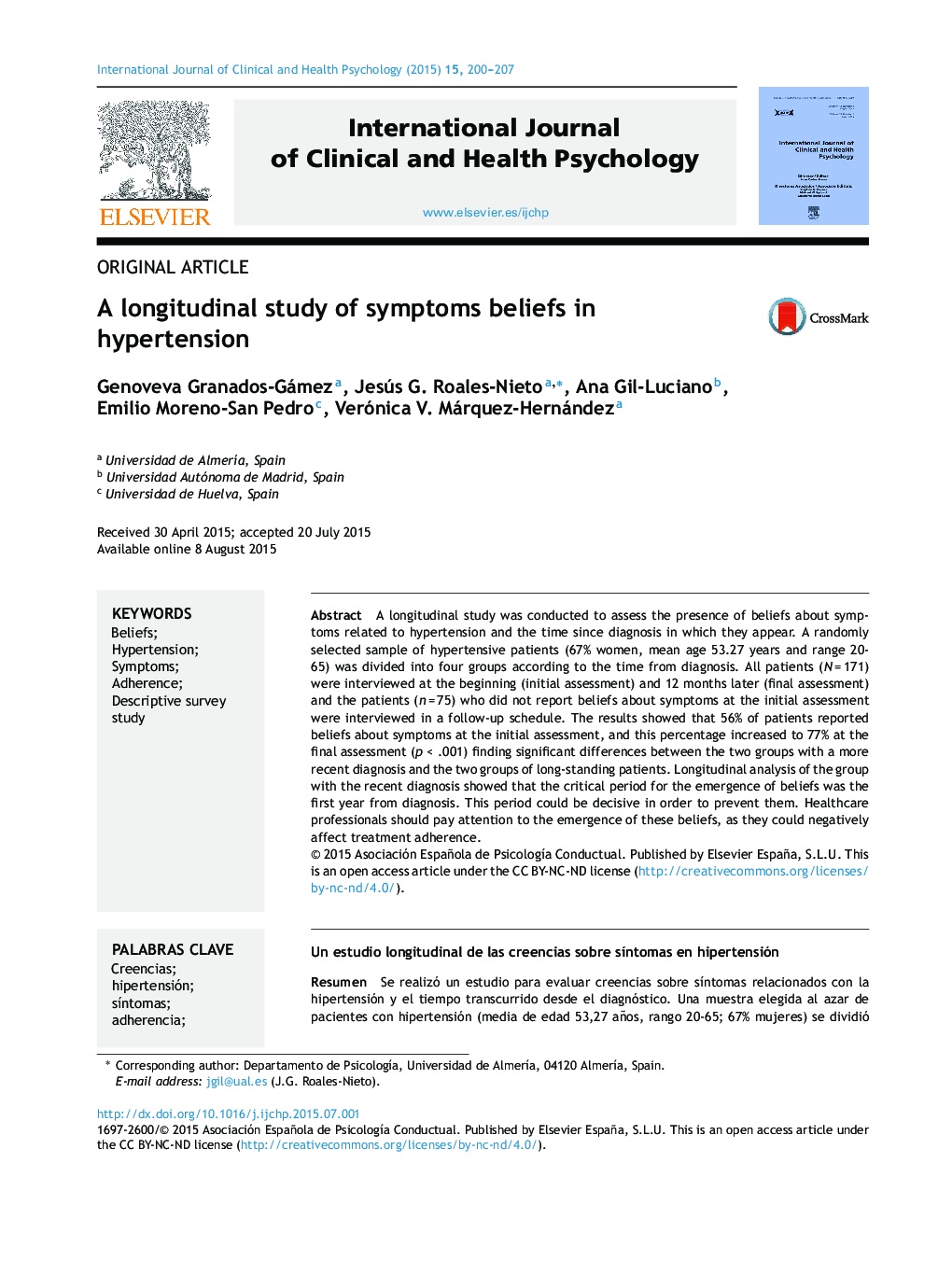| کد مقاله | کد نشریه | سال انتشار | مقاله انگلیسی | نسخه تمام متن |
|---|---|---|---|---|
| 879930 | 1471344 | 2015 | 8 صفحه PDF | دانلود رایگان |
A longitudinal study was conducted to assess the presence of beliefs about symptoms related to hypertension and the time since diagnosis in which they appear. A randomly selected sample of hypertensive patients (67% women, mean age 53.27 years and range 20-65) was divided into four groups according to the time from diagnosis. All patients (N = 171) were interviewed at the beginning (initial assessment) and 12 months later (final assessment) and the patients (n = 75) who did not report beliefs about symptoms at the initial assessment were interviewed in a follow-up schedule. The results showed that 56% of patients reported beliefs about symptoms at the initial assessment, and this percentage increased to 77% at the final assessment (p < .001) finding significant differences between the two groups with a more recent diagnosis and the two groups of long-standing patients. Longitudinal analysis of the group with the recent diagnosis showed that the critical period for the emergence of beliefs was the first year from diagnosis. This period could be decisive in order to prevent them. Healthcare professionals should pay attention to the emergence of these beliefs, as they could negatively affect treatment adherence.
ResumenSe realizó un estudio para evaluar creencias sobre síntomas relacionados con la hipertensión y el tiempo transcurrido desde el diagnóstico. Una muestra elegida al azar de pacientes con hipertensión (media de edad 53,27 años, rango 20-65; 67% mujeres) se dividió en cuatro grupos de acuerdo al tiempo transcurrido desde el diagnóstico. Se entrevistó a todos los pacientes (N = 171) al comienzo del estudio (evaluación inicial) y 12 meses después (evaluación final). A los pacientes que no informaron creencias en síntomas (n = 75) se les entrevistó cada tres meses de acuerdo a un programa de seguimiento. Los resultados indicaron que en la evaluación inicial el 56% de los pacientes informó creencias en síntomas, elevándose al 77% en la evaluación final (p < .001), y diferencias significativas entre los grupos con menor y mayor tiempo desde el diagnóstico. El análisis longitudinal del grupo de pacientes de reciente diagnóstico mostró que el primer año es el período crítico para la emergencia de creencias en síntomas, información que resulta clave para planear la prevención. Los profesionales de la salud deberían prestar atención a la emergencia de creencias en síntomas dado que pueden afectar negativamente a la adherencia al tratamiento.
Journal: International Journal of Clinical and Health Psychology - Volume 15, Issue 3, September–December 2015, Pages 200–207
